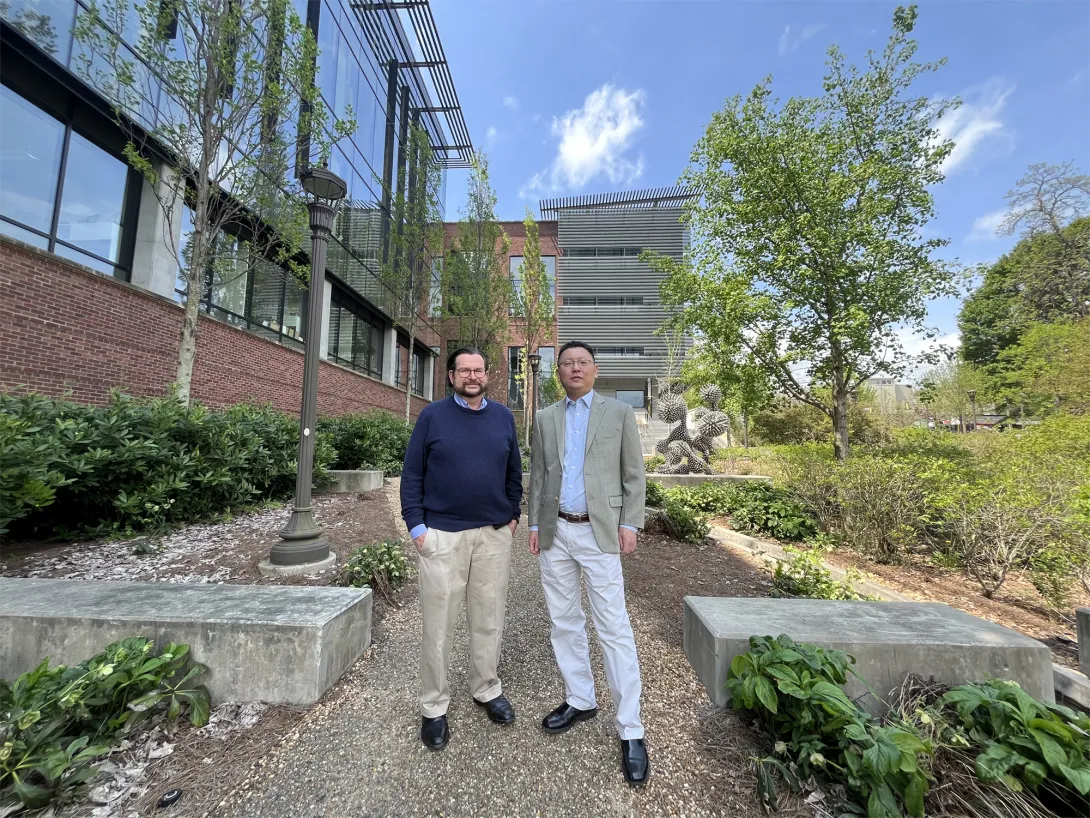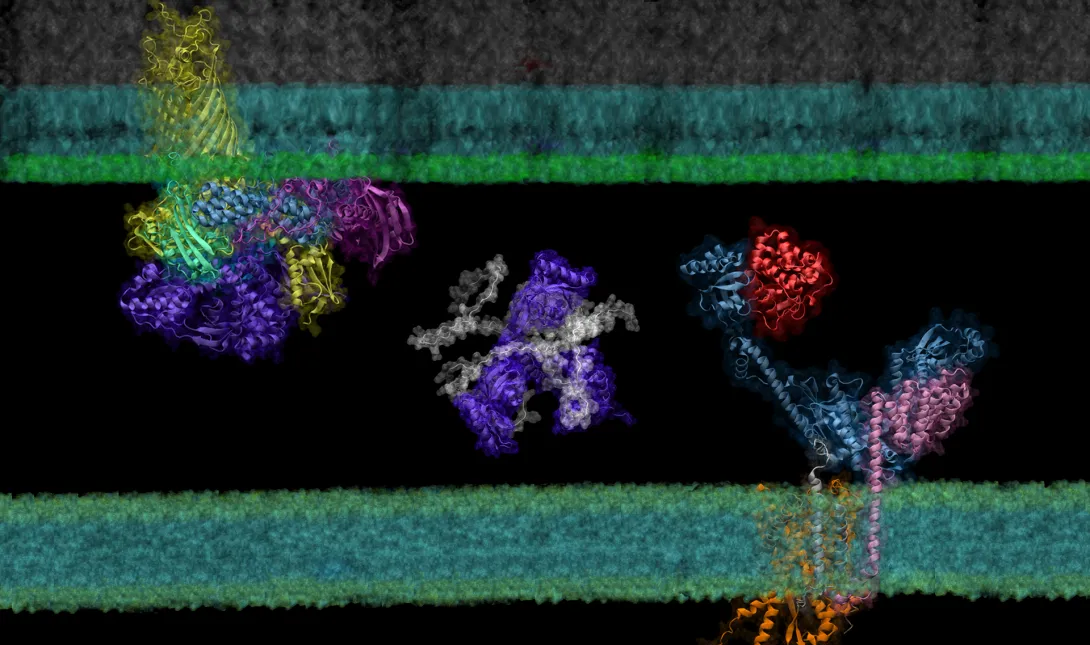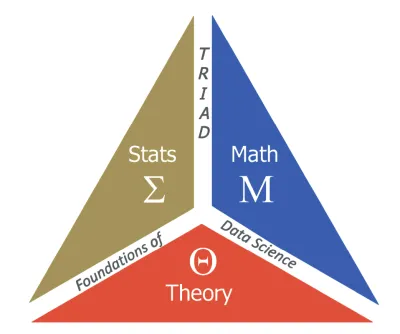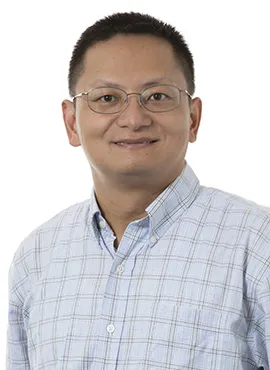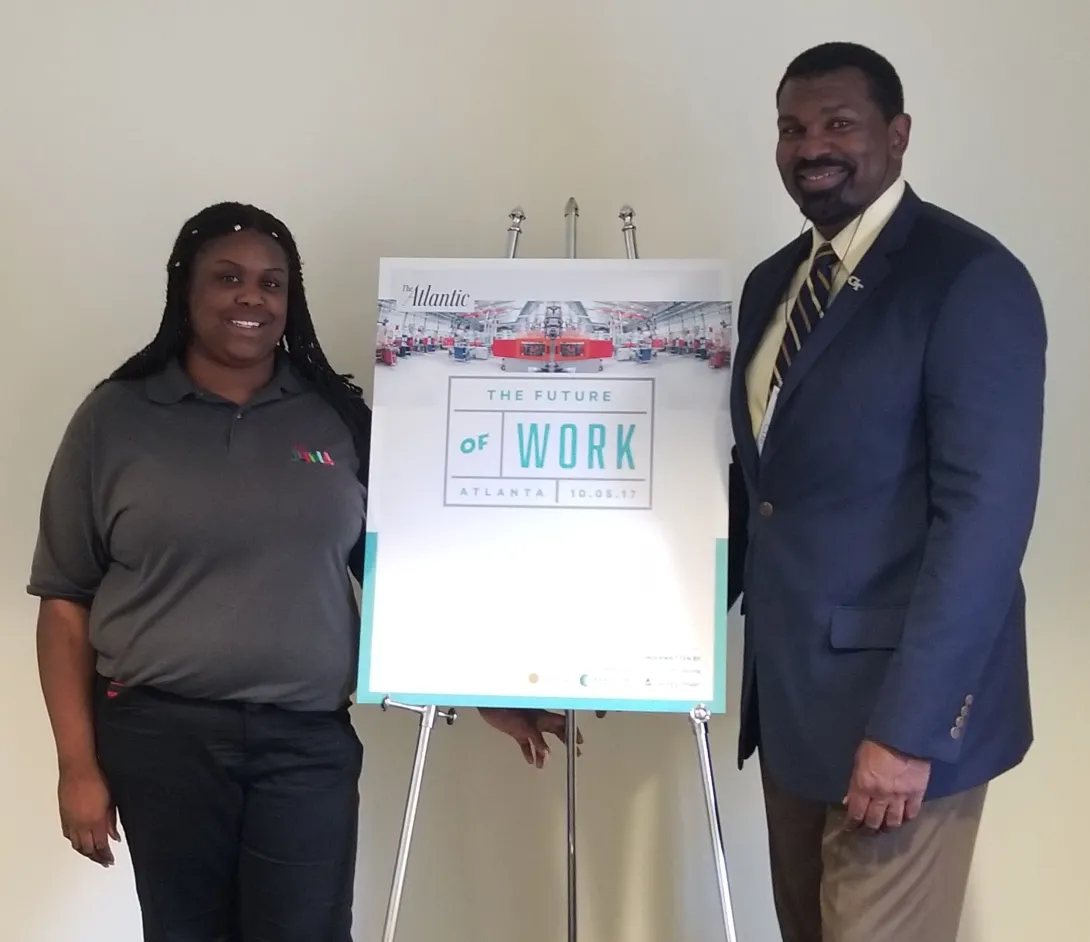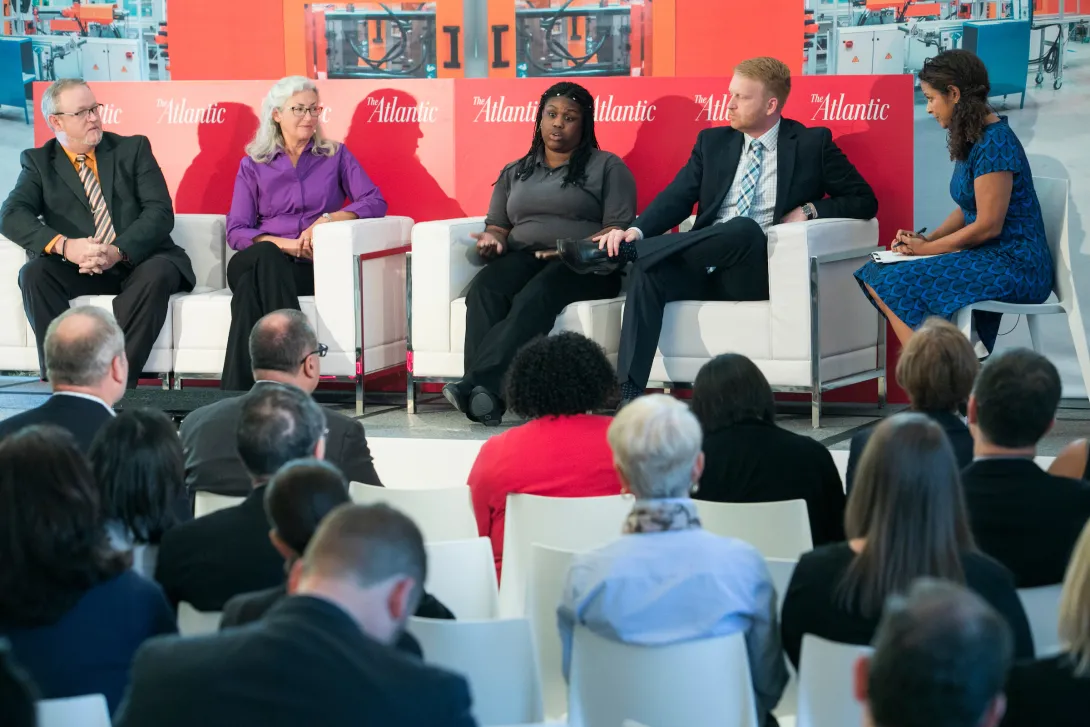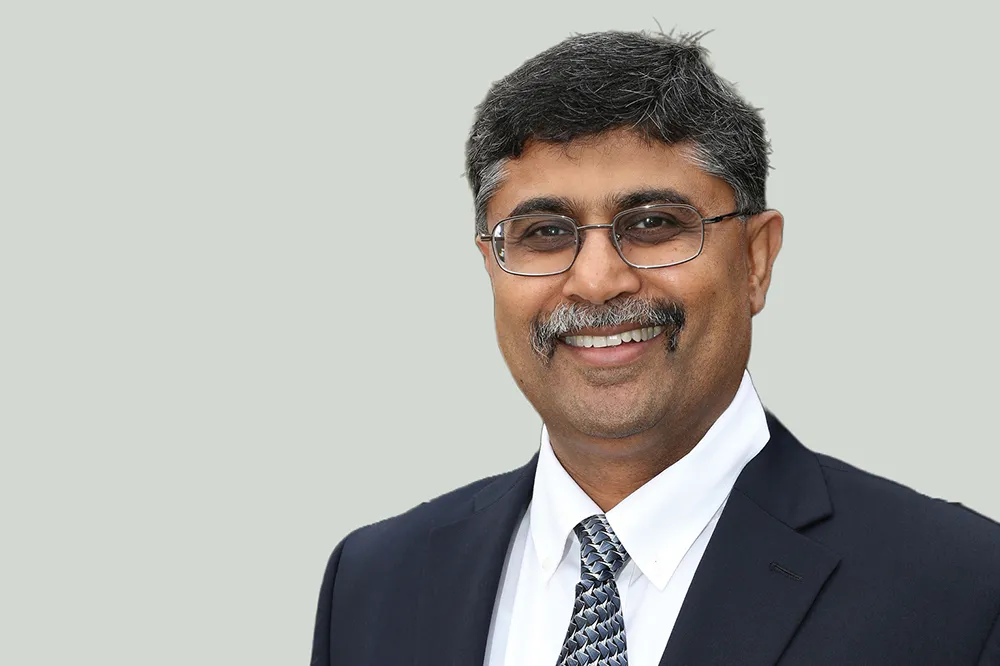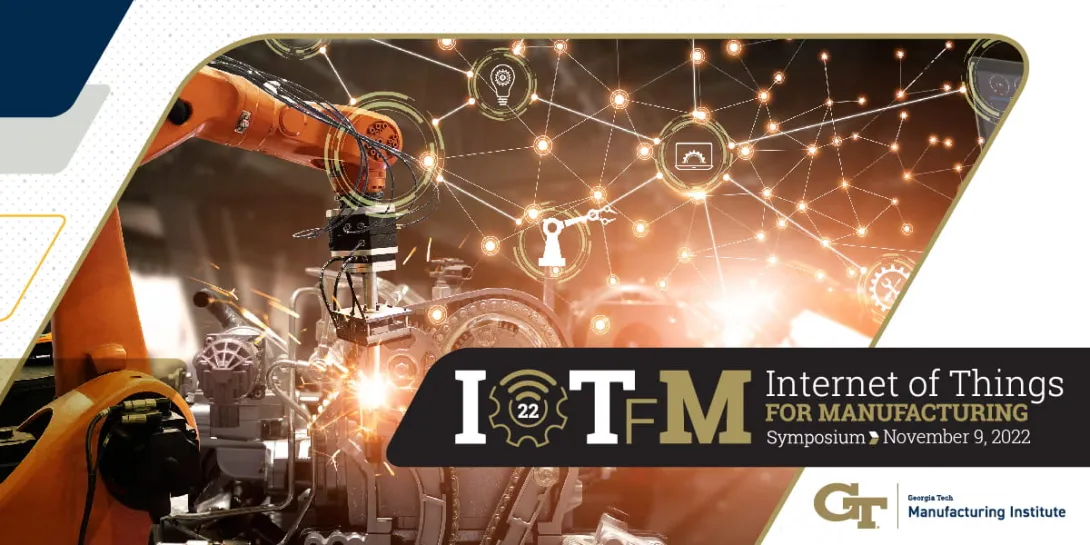Jan. 18, 2023
This year, the Novelis Scholars program review committee at the Georgia Institute of Technology selected seven graduate scholars and four undergraduate scholars. This is the second year of the Novelis scholars program.
The Novelis Innovation Hub at Georgia Tech launched the Novelis Scholars program in 2021. The program seeks to recognize and cultivate top graduate students conducting research in various aspects of sustainability, high-throughput materials discovery, surface functionalization, and artificial intelligence (AI)/data science applications in materials, manufacturing, and supply chain technology.
Novelis has partnered with Georgia Tech to collaborate on research and development, and promote the education of the next generation of engineers dedicated to making better products that lead to a more sustainable world. Novelis is headquartered in Atlanta with a global footprint, over 12,500 employees, and recorded $17.1 billion in net sales for its 2022 fiscal year. Novelis expanded its research partnership with Georgia Tech in 2021.
The 2022-2023 Novelis Scholars are:
Graduate
- Bettina Arkhurst - Ph.D. candidate in the George W. Woodruff School of Mechanical Engineering
- Juanita Hidalgo - Ph.D. candidate in the School of Materials Science and Engineering
- Conlain Kelly – Ph.D. candidate in Computational Science and Engineering Undergraduate
- Walter Parker - Ph.D. candidate in the George W. Woodruff School of Mechanical Engineering
- Sushree Jagriti Sahoo - Ph.D. candidate in the School of Chemical and Biomolecular Engineering
- Alexandra (Lexie) Schueller - Ph.D. candidate in the George W. Woodruff School of Mechanical Engineering
- Sakshi Sharma - Master’s student in the School of Materials Science and Engineering
Undergraduate
- Daniel Johnson - pursuing his B.S. in mechanical engineering
- Suemin Lee - pursuing her B.S. in civil engineering with minors in sustainable cities and computer science
- Brandon Perry - pursuing his B.S. in materials science and engineering
- Sarang Pujari – pursuing his B.S/M.S. in computer science with a minor in climate change
Detailed profiles for this year’s 2022-2023 Novelis Scholars can be found here.
The Novelis Innovation Hub expects to issue its next call for Novelis Scholars for the 2023‐2024 Academic Year in late Spring/early Summer 2023.
News Contact
Jan. 10, 2023
Artificial intelligence is already making headlines in the new year with the box office success of the movie M3GAN. Along with a TikTok dance craze and lots of laughs, the over-the-top horror movie/dark comedy about an AI-powered robot that runs amok is also inspiring discussion about the growing presence and impact of artificial intelligence in everyday life.
From the movie house to the warehouse to your house, AI seems like it's everywhere. That's because with a steady stream of new research and innovative applications reaching into nearly every industry and business sector, it is everywhere. Nevertheless, AI still holds enormous potential as the field continues to evolve.
To get a sense of what this evolution could look like in 2023, we turned to a small group of Ph.D. students from the College of Computing community that are currently pushing foundational and applied AI research forward in a broad spectrum of disciplines and fields.
The students shared their opinions on where AI might be headed in the new year, what some of the big tech stories could be, and why ethics in AI are so critically important.
Where will artificial intelligence and machine learning have the most impact in 2023?
"Artificial intelligence and machine learning will continue to have a huge impact on manufacturing and warehouses with labor shortages and worker turnover continuing to be a concern as more manufacturing and operations jobs are brought back to the United States from overseas. Additionally, AI/ML will continue to help ensure that manufacturing and warehouse facilities are operating as efficiently as possible from energy and material savings to worker safety and parts quality." – Zoe Klesmith Alexander, computational science and engineering Ph.D. student
"Right now, deep learning is on a trajectory to transform the creation space. Artwork and images, videos, data representation and storytelling, co-authoring, and summarizing documents... It's gotten really good." – Ben Hoover, machine learning Ph.D. student
"I think machine learning and AI will keep playing a huge role in how the world and society will be shaped over the next decade in many ways. It will make many other fields more efficient through ML and AI tools we are developing. In 2023, I think ML and AI will have the most impact on social media platforms, helping reduce hate speech, rumor spread, etc." – Agam A. Shah, machine learning Ph.D. student
"One of the big impacts this year may be driverless cars being in your neighborhood. Otherwise, it will be a slow steady drip of GPT3 and other OpenAI models suffusing all applications, making programmers much faster, making journalists faster, making academic articles and lit reviews much faster. We're at a 4th grader level, and I hope by the end of this year we'll be at the 6th grader level. Also, indoor turn-by-turn navigation will be everywhere in 2023 as well." – Brandon Biggs, human-centered computing Ph.D. student
What will be some of the big tech stories in 2023?
"ChatGPT and the GitHub Copilot lawsuit will keep making it into the news and cause more controversies. In general, AI ethics will become more important and get more focus as the technology keeps advancing." – Fabian Fleischer, cybersecurity, and privacy Ph.D. student
"Driverless car fleets will be coming to a city near you. A new battery technology will allow phones to keep their charge for a week. Meta realizes virtual reality (VR) head-mounted displays are for a limited market and uses headphones and phones to provide VR experiences." – Brandon Biggs
What’s an issue or industry that you think could benefit from a computing solution?
"Our reinterpretation of modern deep learning as energy-based associative memories has the potential to transform any industry that relies on foundation models -- giant architectures that require models that are "self-supervised" (learn on their own from data)." – Ben Hoover
"Inclusion in everything. Over 90 percent of websites on the internet have elements that are inaccessible to 25 percent of the world's population who have disabilities. Inclusive design will be the most important area where technology can be redesigned and created to have multiple sensory modalities and be properly programmed." – Brandon Biggs
"Currently, financial markets are far from efficient because they do not fully incorporate information available in large unstructured text data. With the latest development in natural language processing techniques, we can better understand the economy and therefore price financial markets better." – Agam A. Shah
There’s been increasing recognition of the vital role ethics should play in artificial intelligence. How do you see this issue evolving in the next year?
"Specifically in my research, I think explainable AI (XAI) is very important, especially if non-experts in ML will be using black-box ML solutions in a factory. It will be important for humans to trust and to understand the models especially if the models are being using to monitor quality on a safety-critical part.
"Additionally, using XAI for human interaction with robots that utilize deep learning to make decisions will be increasingly important as technologies like collaborative robots (cobots) are integrated into factories. I think in my area of research that it is always important to use automation to aid humans in jobs that are safe for humans to do and not to replace them." – Zoe Klesmith Alexander
"Big data is pretty much at its peak. Deep data, where your Alexa knows everything about you, or your phone knows everything about you, and rather than saying 'other people who watched this show liked this show,' it's going to say, 'I know you liked these shows, I think you'll like this show because of these reasons, one of which is because other people who liked all these other shows liked this show.' The ethical element will be how much of this data should these models use, and are people going to build a personal dataset that they can share with other apps, or is each app going to need to build their own dataset? The ethical question is who owns this data." – Brandon Biggs
"I think ethics will become more and more important going forward. We are making huge breakthroughs in machine learning and artificial intelligence, but the systems we are creating are producing racist, sexist, and stereotypical results. For example, a recent system, Galactica, developed by Facebook (Meta) is powerful. It can produce research articles by just simply providing it with the title. It comes with some serious ethical concerns, in some cases, it produces racist, sexist text. So, as we will keep developing better models and making success in parallel, we need to always keep in mind the ethical implications of these models." – Agam A. Shah
What research are you working on that you think people should know about or will have impact in 2023?
"Part of my research focuses on data-driven modeling of additive manufacturing processes to better control dimensional quality of the final part. Another part of my research focuses on detecting anomalies in real-time using computer vision and machine learning for both warehouses and manufacturing processes." – Zoe Klesmith Alexander
"Right now, deep learning is built on feed-forward mathematical operations that have little resemblance to the brain. I am working on a physics inspired approach to deep learning built around recurrent networks and energy functions. These architectures have the same mathematical foundation as the famous, biologically plausible Hopfield Network." – Ben Hoover
"I am currently working on two projects which, in my opinion, will have an impact in 2023. In one project, we are measuring the exposure of public firms to ongoing inflation. We are also understanding how inflation affects different firms differently based on the pricing power of the firm. As inflation is the highest in the last 40 years, our study is highly relevant now and in the coming years till we get inflation back in control.
"The second work is related to the first work in some ways. As inflation is rising, to control the inflation Federal Reserve Bank is tightening its monetary policy. In our second work, we are measuring the stance of monetary policy (measuring hawkish vs dovish stance) of the Fed using state-of-the-art NLP models to see its impact in various financial markets (Treasury market, Stock market, Crypto market, etc.)" – Agam A. Shah
News Contact
Ben Snedeker, Comms. Mgr. II
albert.snedeker@cc.gatech.edu
Jan. 03, 2023
Though it is a cornerstone of virtually every process that occurs in living organisms, the proper folding and transport of biological proteins is a notoriously difficult and time-consuming process to experimentally study.
In a new paper published in eLife, researchers in the School of Biological Sciences and the School of Computer Science have shown that AF2Complex may be able to lend a hand.
Building on the models of DeepMind’s AlphaFold 2, a machine learning tool able to predict the detailed three-dimensional structures of individual proteins, AF2Complex — short for AlphaFold 2 Complex — is a deep learning tool designed to predict the physical interactions of multiple proteins. With these predictions, AF2Complex is able to calculate which proteins are likely to interact with each other to form functional complexes in unprecedented detail.
“We essentially conduct computational experiments that try to figure out the atomic details of supercomplexes (large interacting groups of proteins) important to biological functions,” explained Jeffrey Skolnick, Regents’ Professor and Mary and Maisie Gibson Chair in the School of Biological Sciences, and one of the corresponding authors of the study. With AF2Complex, which was developed last year by the same research team, it’s “like using a computational microscope powered by deep learning and supercomputing.”
In their latest study, the researchers used this ‘computational microscope’ to examine a complicated protein synthesis and transport pathway, hoping to clarify how proteins in the pathway interact to ultimately transport a newly synthesized protein from the interior to the outer membrane of the bacteria — and identify players that experiments might have missed. Insights into this pathway may identify new targets for antibiotic and therapeutic design while providing a foundation for using AF2Complex to computationally expedite this type of biology research as a whole.
Computing complexes
Created by London-based artificial intelligence lab DeepMind, AlphaFold 2 is a deep learning tool able to generate accurate predictions about the three-dimensional structure of single proteins using just their building blocks, amino acids. Taking things a step further, AF2Complex uses these structures to predict the likelihood that proteins are able to interact to form a functional complex, what aspects of each structure are the likely interaction sites, and even what protein complexes are likely to pair up to create even larger functional groups called supercomplexes.
“The successful development of AF2Complex earlier this year makes us believe that this approach has tremendous potential in identifying and characterizing the set of protein-protein interactions important to life,” shared Mu Gao, a senior research scientist at Georgia Tech. “To further convince the broad molecular biology community, we [had to] demonstrate it with a more convincing, high impact application.”
The researchers chose to apply AF2Complex to a pathway in Escherichia coli (E. coli), a model organism in life sciences research commonly used for experimental DNA manipulation and protein production due to its relative simplicity and fast growth.
To demonstrate the tool’s power, the team examined the synthesis and transport of proteins that are essential for exchanging nutrients and responding to environmental stressors: outer membrane proteins, or OMPs for short. These proteins reside on the outermost membrane of gram-negative bacteria, a large family of bacteria characterized by the presence of inner and outer membranes, like E. coli. However, the proteins are created inside the cell and must be transported to their final destinations.
“After more than two decades of experimental studies, researchers have identified some of the protein complexes of key players, but certainly not all of them,” Gao explained. AF2Complex “could enable us to discover some novel and interesting features of the OMP biogenesis pathway that were missed in previous experimental studies.”
New insights
Using the Summit supercomputer at the Oak Ridge National Laboratory, the team, which included computer science undergraduate Davi Nakajima An, put AF2Complex to the test. They compared a few proteins known to be important in the synthesis and transport of OMPs to roughly 1,500 other proteins — all of the known proteins in E. coli’s cell envelope — to see which pairs the tool computed as most likely to interact, and which of those pairs were likely to form supercomplexes.
To determine if AF2Complex’s predictions were correct, the researchers compared the tool’s predictions to known experimental data. “Encouragingly,” said Skolnick, “among the top hits from computational screening, we found previously known interacting partners.” Even within those protein pairs known to interact, AF2Complex was able to highlight structural details of those interactions that explain data from previous experiments, lending additional confidence to the tool’s accuracy.
In addition to known interactions, AF2Complex predicted several unknown pairs. Digging further into these unexpected partners revealed details on what aspects of the pairs might interact to form larger groups of functional proteins, likely active configurations of complexes that have previously eluded experimentalists, and new potential mechanisms for how OMPs are synthesized and transported.
“Since the outer membrane pathway is both vital and unique to gram-negative bacteria, the key proteins involved in this pathway could be novel targets for new antibiotics,” said Skolnick. “As such, our work that provides molecular insights about these new drug targets might be valuable to new therapeutic design.”
Beyond this pathway, the researchers are hopeful that AF2Complex could mean big things for biology research.
“Unlike predicting structures of a single protein sequence, predicting the structural model of a supercomplex can be very complicated, especially when the components or stoichiometry of the complex is unknown,” Gao noted. “In this regard, AF2Complex could be a new computational tool for biologists to conduct trial experiments of different combinations of proteins,” potentially expediting and increasing the efficiency of this type of biology research as a whole.
AF2Complex is an open-source tool available to the public and can be downloaded here.
This work was supported in part by the DOE Office of Science, Office of Biological and Environmental Research (DOE DE-SC0021303) and the Division of General Medical Sciences of the National Institute Health (NIH R35GM118039). DOI: https://doi.org/10.7554
News Contact
Writer: Audra Davidson
Communications Officer
College of Sciences at Georgia Tech
Editor: Jess Hunt-Ralston
Director of Communications
College of Sciences at Georgia Tech
Dec. 13, 2022
4 Questions with the IDEaS Leadership Team | Featuring Xiaoming Huo; A. Russell Chandler III Professor, H. Milton Stewart School of Industrial and Systems Engineering
This week we introduce Xiaoming Huo, A. Russell Chandler III Professor in the H. Milton Stewart School of Industrial and Systems Engineering at Georgia Tech and Associate Director for Research in the Institute for Data Science and Engineering.
Dr. Huo's research interests include statistical theory, statistical computing, and issues related to data analytics. He has made numerous contributions on topics such as sparse representation, wavelets, and statistical problems in detectability.
1. What is your field of expertise and what questions, or challenges sparked your current research?
My research is focused on the foundational principles of data sciences (also known as machine learning, artificial intelligence, etc.). A large spectrum of algorithms has been developed in the data science field, however, there remains a challenge to understand the performance and limitations of these algorithms and then provide helpful, practical guidelines for their usage by researchers. I began my journey to data science as an undergraduate mathematics major. I have been motivated by the emergence of data sciences and the fact that many of these challenging foundational problems are naturally mathematical. What I am doing now seems to be a perfect spot for someone who wants to explore fundamental mathematics while still making an impact in deployable applications.
2. Why is the field of Data Science and Engineering important to the development of Georgia Tech’s broader research strategy?
In the most recent science and engineering research endeavors, no matter the discipline, large amounts of data are generated and collected. Consequently, more and more research finding across colleges and schools at Georgia Tech, and globally, are data-driven. The ability to correlate and make meaningful connections within data will be essential for future researchers. Additionally, the innovative breakthroughs in science and engineering of the future are likely to rely heavily on the utilization of tools from data science and the availability of new data types.
3. What are the global and social benefits of the research you and your team conduct?
Currently, my research is primarily mathematical. Our end goal is to provide data handling principles, guidelines, and best practices that researchers and students can apply.
4. What are your plans on engaging a wider GT faculty pool with IDEaS research?
I am the executive director of the Transdisciplinary Research Institute for Advancing Data Science (TRIAD) (triad.gatech.edu). In 2017, we won an NSF TRIPODS Phase 1 award to establish this Center. TRIAD is housed under the Institute of Data Engineering and Sciences (IDEaS). I am currently serving as the Associate Director for Research (ADR) of IDEaS. As an ADR, I organize campus-wide activities related to data science research at Georgia Tech, aiming to catalyze collaborative activities. My current project is to organize a Georgia Tech workshop on the foundations of data science. We hope to provide a brainstorming event for relevant researchers in early 2023.
Learn More About the Team’s Work Here: https://sites.gatech.edu/xiaoming-huo/
Dec. 12, 2022
Devyon wasn't having success landing interviews or getting call backs for job applications. A mentor at the National Urban League encouraged him to apply to Juma, an employment and job training program which helps youth overcome the hardships of poverty and aspire to career success. As part of its social enterprise operations in Atlanta, Juma offers year-round employment to over 140 Atlanta youth at SunTrust Park, Mercedes-Benz Stadium, and State Farm Arena—home of the Braves, Falcons, Hawks, and Dream—as well as the Georgia World Congress Convention Center.
Devyon applied and successfully enrolled in Juma, and found a path to earn money, build his resume, and pave his future. As part of the program, Devyon took Georgia Tech LEAP courses to learn more about supply and logistics and the career paths the field has to offer. His dedication to the job, his willingness to go above what was expected of him and his attention to detail were characteristics that made him stand out to Juma’s Enterprise Managers. After successfully completing Juma’s training program, Devyon secured a job at UPS, a Juma Atlanta job placement partner. Today, Devyon has stable employment and, after successfully passing UPS’ Supervisor Exam, became a Shift Manager.
Dec. 12, 2022
Zaria participated in Juma, an employment and job training program which helps youth overcome the hardships of poverty and aspire to career success. As part of its social enterprise operations in Atlanta, Juma offers year-round employment to over 140 Atlanta youth at SunTrust Park, Mercedes-Benz Stadium, and State Farm Arena—home of the Braves, Falcons, Hawks, and Dream—as well as the Georgia World Congress Convention Center.
Zuma promotes participants to earn while they learn, so while going to school during the week to pursue her GED, Zaria took GT LEAP courses at night and worked in the Juma Atlanta concessions operations group on the weekend. Through perseverance and her will to succeed, she later secured fulltime employment within the JUMA organization.
At the Future of Work 2017 summit sponsored by The Atlantic, Zaria was asked about her experience. She commented, “sometimes, people just need a second chance and an opportunity to take advantage of it.” The experience has opened her eyes to the possibilities and Ms. Walker has aspirations to be a crime scene investigator. Zaria plan to pursue further education and make that dream a reality some day.
Dec. 12, 2022
On a journey for knowledge and self-development, Marine Corporal Phillip Davis completed the Supply Chain Management Principles, Customer Service Operations, Warehousing Operations, and Transportation Operations courses as part of the LEAP program.
“The courses have given me more tools towards helping build my critical thinking skills and the necessary skills and training to help me apply information about good supply chain management. It also gives me certainty in performing my duties as a Marines administrator to ensure required supplies and materials are delivered in a timely and right way.”
Corporal Davis commented that one day he would like to own his own business. By taking the LEAP courses, he has gotten closer to that goal through a better understanding of the importance of supply chain. “It helps me think about how to have things ready when and before people need them, to meet and exceed internal and external customers' demands. Being an administrator, there are things that I need to stay informed about, and acquiring awards, certificates help me do that. Responsibility wise, I constantly keep track of what we use, have and when we are down to half supplies. I put in orders for new supplies and replacement. The courses that I have taken definitely help me perform my duties at a high level above expectation. Overall, this program has helped me add on to my organization and accounting skills as in the military accountability is a big thing.”
Dec. 01, 2022
Todd Ullom has over 30 years' experience as an entrepreneur, developer, general contractor, technologist, and market strategist holding senior executive positions with both private and public companies. He is currently vice president for MiTek, a wholly owned subsidiary of Berkshire Hathaway, leading the development of the company’s distributed construction platform which is initially focused on offsite volumetric assembly of hotels. He joined MiTek as part of the acquisition of Innovation Builder, a technology company founded by Todd with a focus on solving the construction industry's toughest problems. Throughout his career, Todd has managed both growth and turnaround companies, developed new business opportunities, designed industry leading business processes and developed innovative marketing strategies. His experience includes founder and president of a bespoke building company; senior leadership positions in large private and public construction companies including COO, region president, VP of strategy and operations; and VP of strategy and business development for a technology firm.
Todd has developed more than $2.5 billion in real estate with annual P&L responsibility of more than $500 million and developed turnaround programs for over 50 projects during the financial crisis. He has developed industry leading processes for scheduling, purchasing and trade relationships. Todd created the Martha Stewart and Ralph Lauren branded home programs and has developed creative customer centric product designs and selling strategies. He has provided business and technology consulting for more than 200 builders and contractors of all sizes throughout North America. Todd has also served in numerous capacities constructing large scale commercial projects that include major medical research facilities, hospitals, dormitories, hotels and club houses.
Todd has a B.S. in Building Construction from the Georgia Institute of Technology, is a licensed Florida general contractor and sales associate, certified in advanced design thinking through IDEO and is a certified leadership coach with John Maxwell. He is a former president of the Atlanta Homebuilders Association, was named as one of Seattle’s Top Business Executives Under 40 in 1999, received the Lee Evans Award for Management Excellence in 2012, was named America’s Best Builder in 2013 and currently serves on the Board of Governors for the non-profit Opportunity International.
Dec. 01, 2022
Shreyes N. Melkote, who holds the Morris M. Bryan, Jr. Professorship in the George W. Woodruff School of Mechanical Engineering, has been awarded a $3 million Future Manufacturing Research Grant from the National Science Foundation (NSF). Melkote, who is also the Associate Director of the Georgia Tech Manufacturing Institute and Executive Director of the Novelis Innovation Hub, will act as principal investigator alongside four other researchers, including Woodruff School Professor Emeritus David Rosen, and will explore a data-driven approach to cyber manufacturing. The grant will also support Melkote’s efforts to work with academic and industry partners to develop educational tools to train a future manufacturing workforce from diverse backgrounds.
“We are excited to have the resources that the NSF has provided,” Melkote said. “It’s the best type of resource because it allows us to do basic research.”
Cyber manufacturing looks to leverage recent advances in artificial intelligence and machine learning, cloud technology and the expanding reach of the Internet-of-Things to reduce the cost and time of producing discrete parts. Presently, the manufacturing process is compartmentalized, with design, fabrication, and distribution heavily reliant on direct communication between the parties, and often involves multiple iterations of a design before the customer’s needs are met.
In a future cyber manufacturing ecosystem, the process is digitally unified across the supply chain and potential issues in fabrication can be flagged automatically and early in the design process, minimizing the need for multiple prototypes. The final design can then swiftly be routed to those best equipped to produce the product based on the specifications.
This vision of a fully automated, interconnected process has long been sought after and is considered the ‘holy grail’ of discrete parts manufacturing.
“It's an old problem,” Melkote said. “But we have new ways of potentially trying to solve it, and we have a critical mass of people and resources to help solve, or at least make a significant dent, in solving the problem.”
A crucial step in solving the problem requires digitizing and automating the complex series of decisions that begin when a new design for a product is completed. What are the manufacturing processes (and machines) required to produce the design? What processes create the most durable build, or the most cost-efficient? Can the design be altered for manufacturability without compromising functionality and quality?
For mass-produced discrete products or parts built to universal standards, these are questions to which suitable answers have been found through trial-and-error, but bespoke or new designs often require specialized knowledge about manufacturing processes and their capabilities. A company or individual will use their current level of understanding to discern how to move forward with a brand-new design.
“Fundamentally they are harnessing the knowledge derived from data they have tucked away somewhere and then using that to actually take a shot at figuring out how to make it,” Melkote explained. “But it would be great if they had all of these capabilities in an automated way. This grant is focused on how you generate the complex knowledge that individuals have acquired through experience.”
Melkote’s interdisciplinary approach will use generative machine learning and other artificial intelligence techniques to help automate this complex decision-making process. If a computer can infer the capabilities and limitations of an industrial manufacturing process and associated machines, then it should be able to make intelligent deductions about the entire manufacturing process, at least in theory. Extracting the data necessary to make this happen requires new methods that Melkote and his co-investigators will research.
“If I can teach a computer to be able to learn these things, the more data from successfully produced parts I can provide it, then its learning will improve and its ability to get close to telling me what all the types of things I can produce using a given process on a given machine will improve.”
The models and algorithms that would run this process could then be embedded in an automated cyber manufacturing service, which can analyze an uploaded design and provide a customer with instant feedback regarding recommended modifications, and projected costs, or even generate instructions and send them to the right machine. The work could see sweeping changes made to several manufacturing industries and democratize the way products are designed and made.
Alongside Rosen, Melkote will work closely with three other researchers, two of which have ties to Georgia Tech, including Matthew Gombolay, an assistant professor in the School of Interactive Computing, and Mahmoud Dinar, a former postdoctoral fellow at the Woodruff School and current Assistant Professor at California State University-Sacramento. Dr Gaurav Ameta, a research scientist at Siemens Corporate Technology will also work as co-principal investigator.
The grant is part of a wider national initiative that saw more than $30 million awarded to university-based research projects on advanced manufacturing and preparation of the manufacturing and STEM workforce for the future.
Article by Ian Sargent
News Contact
Nov. 22, 2022
The Georgia Tech Manufacturing Institute recently hosted its latest Internet of Things for Manufacturing (IoTfM) Symposium, focused on emerging IoT technologies in the manufacturing sector.
The yearly event was led by Andrew Dugenske, director of the Factory Information Systems (FIS) Center and a principal research engineer at Georgia Tech. Dugenske’s FIS Center focuses on advances in factory architectures, machine communication, cloud computing, edge devices, machine learning, artificial intelligence, overall equipment effectiveness and cybersecurity.
The event delivered fresh insights from more than 20 industry leaders. Speakers shared exclusive learnings from actual IoTfM implementations. Industry thought leaders, major manufacturers and respected experts participated in this year’s eighth annual symposium.
Presenters this year included representatives from Ford Motor Company, Kimberly-Clark, Autodesk, McKinsey & Company, Capgemini, ACS, QCells, Intuitus, Georgia Tech Manufacturing Institute, Georgia Department of Economic Development, University of New Hampshire, and researchers across Georgia Tech.
John Morehouse, director of manufacturing for the Georgia Center for Innovation commented, “Having companies present their use cases is so valuable to other manufacturers and the resources that want to support them.”
Missed the symposium? You can download and view all presentations by visiting the 2022 IoTfM symposium webpage.
The event was sponsored by the state of Georgia’s innovation and manufacturing group, the Georgia Tech Manufacturing Institute and the Georgia Tech Factory Information Systems Center.
To learn more or to join next year’s invitation list, contact Andrew Dugenske at dugenske@gatech.edu.


